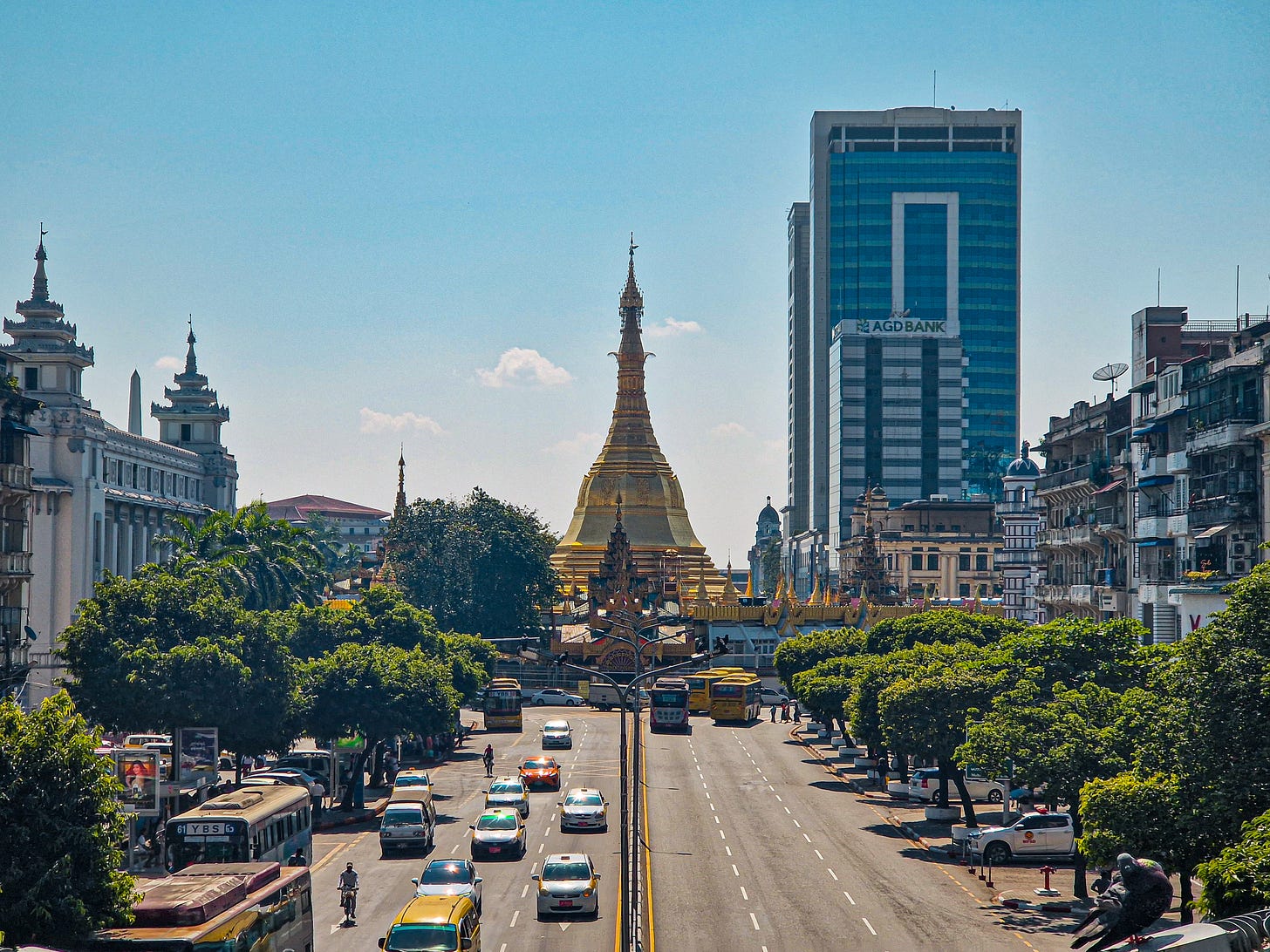The day before yesterday, I finally got back from Yangon, the erstwhile capital of Myanmar.
Ever since the coup in 2021, the situation there has been pretty horrible. Half the shops have closed and electricity only runs a few hours a day.
Every evening the streets suddenly empty as a curfew comes into effect. Even emergency vehicles disappear from the streets for four hours a night.
At the same time life goes on: bars playing Bob Marley are full until just a few hours before curfew, the punk youth scene still gathers around 19th street in Downtown, and people are still persevering through all the horrors of the junta.
The reason I went was for book research. Back in the day, this city was known as Rangoon and, although largely forgotten today, it was the eastern-most capital of British India for over a century.
The story of Burma’s separation from India is a major part of my upcoming book Shattered Lands: The Five Partitions of India.
Even today the city feels like a minituare version of Calcutta - so many of the buildings are identical. But Yangon’s colonial-era urban core is even better preserved - indeed by some metrics it is the best preserved colonial capital in Asia!
This is its story!
Precolonial Rangoon
Most of Yangon is of British origin, but several iconic pagodas - including the Shwedagon and Sule Pagodas - are of much more ancient origin.
These extraordinary structures are said to date from the time of the Buddha himself, when two brothers brought the Buddha's hair relics from India to Burma.
Keep reading with a 7-day free trial
Subscribe to Travels of Samwise to keep reading this post and get 7 days of free access to the full post archives.





